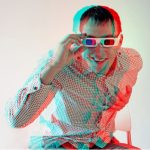Our team will reach out to discuss how we can alleviate your symptoms and help you reach your full potential.
Neuro-Rehabilitation for Concussions and Traumatic Brain Injuries (TBI)
Have you or someone near you love suffered a concussion or TBI? We love helping those who suffer from these conditions get back to feeling healthy and normal! Give us a call.

Concussions and Traumatic Brain Injuries
They cause more visual symptoms than you would think.
What is a Concussion?
A concussion is a specific type of traumatic brain injury that occurs when the brain rebounds off the side of the skull. The serious impact damages cerebral tissue and may result in vomiting, blurred vision, slurred speech, loss of consciousness, or headaches. Concussions require immediate medical attention.Symptoms Associated with Concussions and TBIs
Anyone whose symptoms persist beyond two weeks after the initial injury requires intervention; otherwise, recovery may take months or years to recover. One of the most prominent long-term side effects of this kind of head injury is impairment to the visual system. Concussions and TBIs can disrupt the focusing system, interfere with eye-teaming (how well the eyes work together), diminish depth perception, lead to poor eye tracking, or cause the peripheral vision system to become over or underactive.How an Impaired Visual System Affects Real Life
Losing visual function dramatically diminishes a person’s quality of life. The chart below describes how the loss of visual skills impacts a person’s daily life.
Impaired Focusing
- Blurred Vision
- Headaches
- Eye strain or fatigue
- Difficulty reading

Impaired Eye-Teaming
- Double vision
- Strabismus (eye turn)
- Poor depth perception
- Eye strain or fatigue
- Headaches
- Difficulty reading

Impaired Depth Perception
- Trouble localizing objects in space
- Clumsiness or tendency to bump into objects
- Difficulty driving
- Difficulty with stairs

Poor Eye Tracking
- Lose of place when reading
- Skipping words when reading
- Poor eye-hand coordination
- Difficulty with sports
- Difficulty judging the speed of moving objects

Overactive Peripheral Vision
- Motion sensitivity
- Feeling overwhelmed in grocery stores
- Headaches, dizziness or nausea in crowds or visually congested spaces

Underactive Peripheral Vision
- Narrowed peripheral vision
- Difficulty attending to details
- Increased probability of colliding with objects or other vehicles
As previously mentioned, dizziness or feelings of being “off balance” commonly follow concussions and TBIs. The brain uses three senses to stabilize the body: the vestibular system (in your inner ear), the proprioceptive system (sensors in your muscles and joints that communicate with the nervous system) and your vision. These systems work together like a three legged stool to equalize and balance your body. When your vision has been affected by a TBI, your body must try to balance with just two legs of the stool. Understandably, it’s a tricky thing to do.
